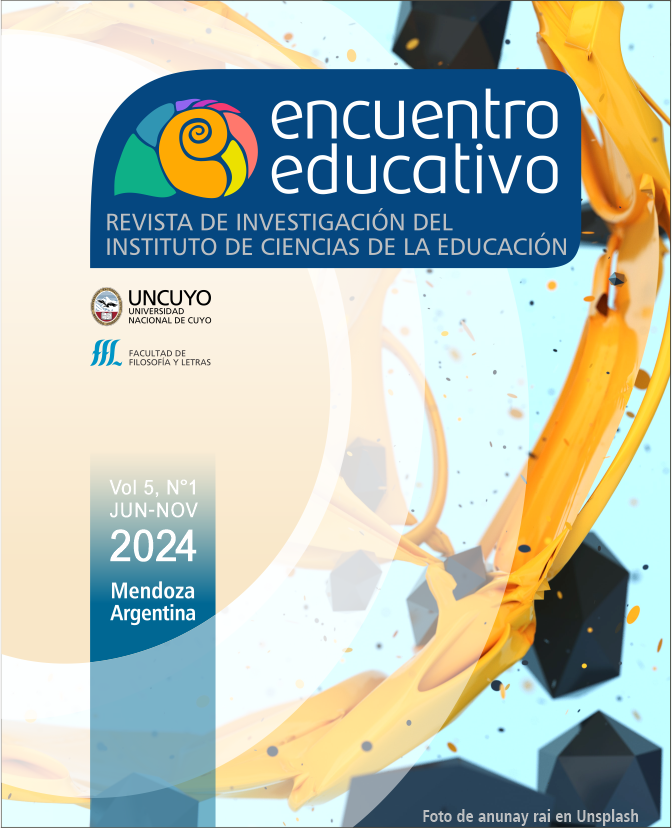Social media and educational transformation
Keywords:
higher education, social networks, potentialities, risks, teachers’ and students’ opinionsAbstract
In the digital age, education has undergone a significant transformation due to the impact of technology. This aligns with global challenges in education, driven by globalization and the demand for 21st century skills. Social media has emerged as a promising tool to improve educational quality and adjust to the changing expectations of today's students. Platforms, such as Facebook, Twitter and Instagram, have evolved from simple media to dynamic educational tools that encourage active participation and collaborative learning. In the context of a research project at the Faculty of Engineering and Agricultural Sciences of the National University of San Luis, Argentina, surveys were administered to teachers and students from five higher level institutions with the aim of exploring the perceptions and use of social media in teaching in general and in English teaching in particular. This study provides an empirical perspective on the possibilities of applying networks in the classroom, highlighting the advantages of their educational use as well as the associated challenges and risks, and understanding the importance of knowing the opinions of teachers and students for effective integration of these technologies in educational environments.
References
Abero, L., Berardi, L., Capocasale, A., García Montejo, S. y Rojas Soriano R. (2015). Investigación Educativa. Abriendo puertas al conocimiento. Contexto S.R.L.
Ariza, R. y Pons, L. (2021). Medios y redes sociales en la enseñanza-aprendizaje del inglés: valoraciones de estudiantes universitarios. REXE- Revista de Estudios y Experiencias y Educación, 20(43), 129-148. http://www.rexe.cl/ojournal/index.php/rexe/article/view/941
Barrezueta-Cabrera, T., Renés-Arellano, P. y Hernando-Gómez, Á. (2023). ¿Están seguros los jóvenes en redes sociales? Diseño de un instrumento para medir la competencia mediática frente a los riesgos de redes sociales. Contratexto 40, 29-54. https://doi.org/10.26439/contratexto2023.n40.6448
Gros, B. (2015). La caída de los muros del conocimiento en la sociedad digital y las pedagogías emergentes. EKS, 16(1), 58-68. https://www.redalyc.org/articulo.oa?id=535554757005
Hodges, C., Moore, S., Lockee, B., Trust, T. y Bond, A. (2020). The Difference between Emergency Remote Teaching and Online Learning. https://er.educause.edu/articles/2020/3/the-difference-between-emergency-remote-teaching-and-online-learning
Kreijns, K., Kirschner, P. y Jochems, W. (2003). Identifying the Pitfalls for Social Interaction in Computer-Supported Collaborative Learning Environments: A Review of the Research. Computers in Human Behavior. 19. https://doi.org/10.1016/S0747-5632(02)00057-2
Lazcano-Peña, D., Bustamante, G., Lagos, C. y Cabalín, C. (2023). “Me enteré por Instagram” Consumo y competencias mediáticas de jóvenes de sectores populares y medios en Chile. Revista Contratexto, 40, 238-256. https://doi.org/10.26439/contratexto2023.n40.6393
Mantilla, L. F. C., Narváez, C. A. V., Carillo, M. A. R. y Arrobo, J. M. C. (2020). Uso de redes sociales en el aprendizaje del inglés en estudiantes universitarios. Revista Espacios, 41(37), 235-243. https://www.revistaespacios.com/a20v41n37/20413719.html
Mariño Benítez, M. E. (2022). Las redes sociales en la enseñanza-aprendizaje de idiomas. Revista Científica Cultura, Comunicación y Desarrollo, 7(1), 41-47. https://rccd.ucf.edu.cu/index.php/aes/article/view/333
Martínez, M. (2020). Los virtuales de la escuela. Revista Ignorantes. Especial fin del mundo. https://rededitorial.com.ar/revistaignorantes/los-virtuales-de-la-escuela/
Martínez-Martínez, A. L. (2020). Las redes sociales y la enseñanza del inglés. Con-Ciencia Serrana Boletín Científico de la Escuela Preparatoria de Ixtlahuaco, 2(3), 22-24.
https://repository.uaeh.edu.mx/revistas/index.php/ixtlahuaco/article/view/5066
Mukhtar, S. y Nur, R. (2019). Using Social Media in English Teaching and Learning Process. http://dx.doi.org/10.31219/osf.io/bnfph
Pérez Gómez, A. (2020). Los desafíos educativos en tiempos de pandemias: ayudar a construir la compleja subjetividad compartida de los seres humanos. Praxis educativa, 24 (3), 1-24.
https://dx.doi.org/10.19137/praxiseducativa-2020-240302
Rama Devi, V. y Nayak, M. (2013). Go Social, Be Universal. Indian Journal of Applied Research. 3(10), 1-3. https://www.worldwidejournals.com/indian-journal-of-applied-research-(IJAR)/fileview/October_2013_ 1493104526__134.pdf
Redes sociales. (s/f). En Enciclopedia Concepto. Recuperado el 5 de noviembre de 2023, desde https://concepto.de/redes-sociales/
Rheingold, H. (2012). Net Smart: how to Thrive Online. The MIT Press.
https://hci.stanford.edu/courses/cs047n/readings/rheingold-net-smart.pdf
Sabino, C. (1992). El proceso de Investigación. Lumen.
Siemens, G. (2004). Conectivismo: una teoría de aprendizaje para la era digital. Traducción de Diego E. Leal Fonseca.
https://docplayer.es/75071865-Conectivismo-una-teoria-de-aprendizaje-para-la-era-digital.html
Tarullo, R. y Frezzotti, Y. (2021). Ver no siempre es creer: el uso juvenil de Instagram como canal de información y noticias falsas sobre COVID-19. Cuadernos del Centro de Estudios de Diseño y Comunicación, (136), 37-53. https://doi.org/10.18682/cdc.vi136.5039
Downloads
Published
How to Cite
Issue
Section
License
Copyright (c) 2024 Marcela Rivarola, Maria Belén Domínguez

This work is licensed under a Creative Commons Attribution-NonCommercial 4.0 International License.


















